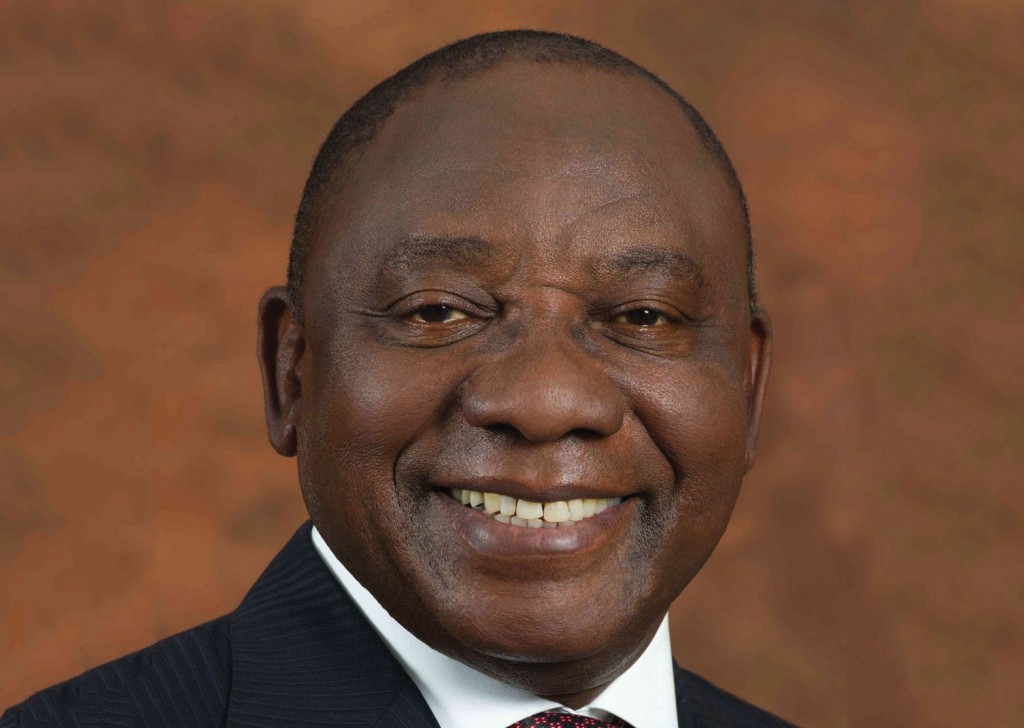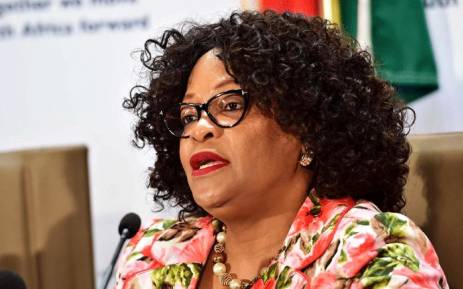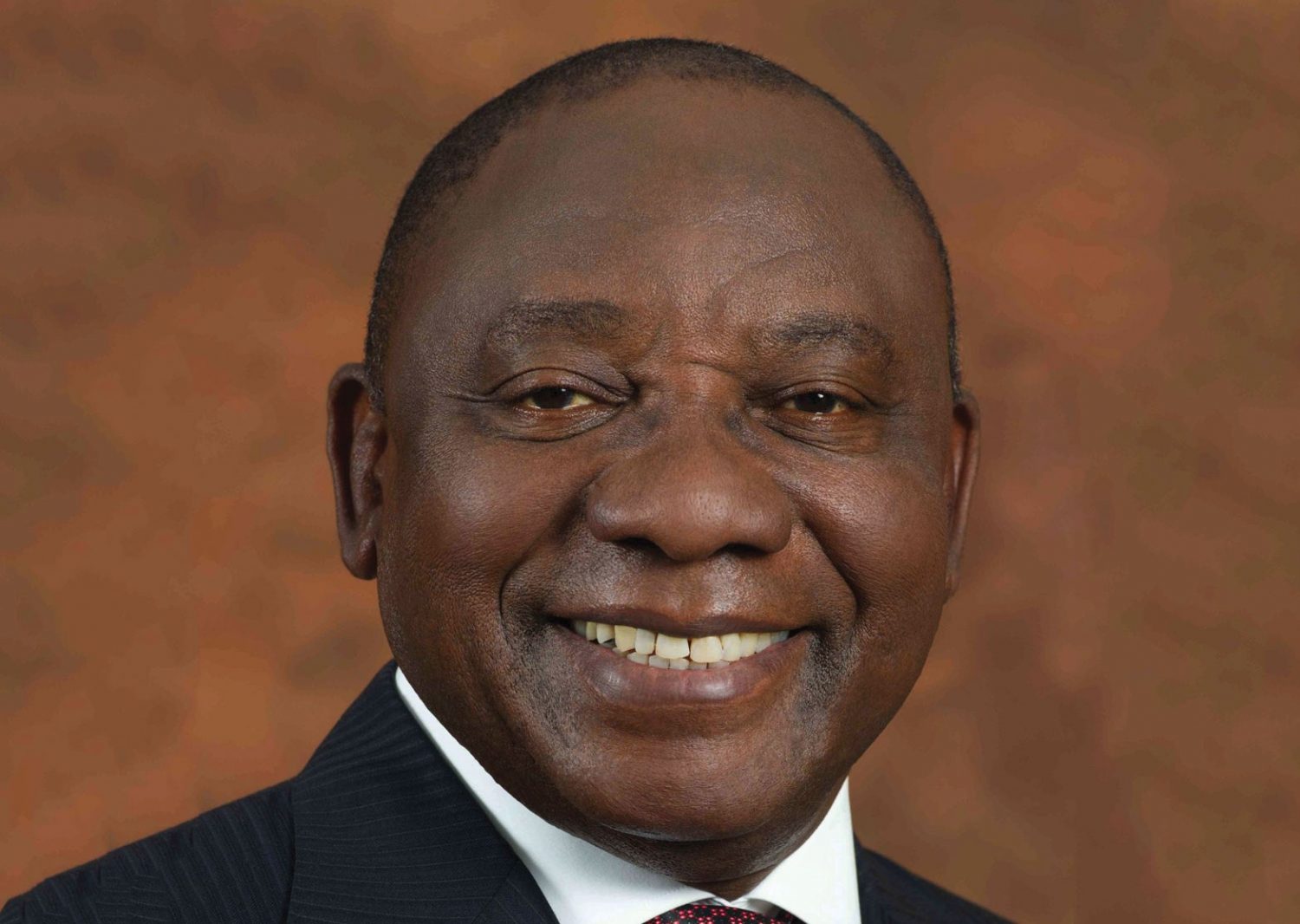Outrage over U.S. chief white supremacist Donald Trump’s interference in South Africa’s land reform

BY ALAN GREEN
In a Fox News show, Tucker Carlson Tonight, aired eariler this week, the host accused South Africa’s president Cyril Ramaphosa of being a racist, called him a coward, and claimed the president has changed the constitution to “steal land from white citizens because they have the wrong skin color.” The comments sparked popular outrage, but South African authorities, including President Ramaphosa himself, reacted calmly and sought to explain the government’s approach to land reform.
The show host first drew a contrast between the U.S. State Department’s portrayal of South Africa as a democratic state and what he perceives as a racist government.
“The State Department did not mention that by following the rule of law, he [Ramaphosa] has changed the Constitution to make it possible to steal land from people because they’re the wrong skin color.”
Carlson’s guest for the show, Marian Tupy, whom he introduces as a South African, is an editor of humanprogress.org.
It must be noted that no constitutional change has yet taken place in South Africa for such a purpose, which added a dimension of flat-out lie to the conservative talk show’s outrageous statement.
In reaction to the show, President Trump tweeted on Wednesday:
“I have asked Secretary of State Pompeo to closely study the South Africa land and farm seizures and expropriations and the large scale killing of farmers.”

The first official, publicly-known reaction came from South Africa’s Communications Minister, Nomvula Mokonyane who, during a press briefing Wednesday, described Trump’s remarks as “unfortunate.” She however added that the remarks will not determine South Africa’s approach to its relations with the United States:
“The tweet has not determined our approach to the United States on our current and future relationships. We do believe that once there are these kinds of concerns, surely, there should be the relevant channels of communication that should actually have been used.”
President Ramaphosa’s spokesperson, Khusela Diko, for his part, said:
“The president has already asked the Minister of International Relations and Cooperation, Lindiwe Sisulu, to get clarification from the US Embassy. And it’s only at that point where we’ll be able to further engage on the matter.”
Then the point came, the following day, when a column by President Ramaphosa appeared in the Financial Times in which he explained that the lingering economic disparities of the apartheid era, which translate to severe inequality between black and white South Africans, justify the land reform initiative. The president stressed that the extension of land ownership to blacks is a prerequisite for South Africa to reach its full economic potential.
He also says that South Africa will not make the same mistakes as some countries have about land reform, assuring the readers that the land reform plan, which he deems very important for the country, will uphold property rights and will not hinder future investment in the economy. The president, who is adamant the programme will not hurt agricultural production or food security, added:
“This is no land grab. Nor is it an assault on the private ownership of property.”
The show and Donald Trump’s tweet that followed it have sparked outrage in the country, typically on social media, and all the way to Washington’s political circles, inflaming the already hot debate about the planned land reform and stoking social division in the country.
Floyd Shivambu, deputy president of a left wing organization here known as The Economic Freedom Fighters, tweeted:
“That’s madness and highest form of foolishness by a racist bigot, who lacks the basic intelligence to understand anything. South Africa will never be intimidated by global racists who believe in lies. Land expropriation will happen against all forms of threats by Foolishness.”
The African National Congress, the late President Mandela’s party—the ruling party in the land—stepped in to hit back at Trump. The party’s spokesperson, Zizi Kodwa, made clear nothing will stop the land reform plan.
“We will continue with our project here in South Africa to make sure that this country belongs to all those who live in it, black and white.”
Kodwa also said of the U.S. president:
“He’s a very unconventional president of the biggest country in the world, very influential politically and economically but very reckless.”
Adding his voice to the debate, the young, far-left opposition activist Julius Malema wants Trump out of the debate and said, addressing the press: “You have caused enough problems in Africa.”
________________________________________
Also: President Trump? The Gods must be crazy
________________________________________
Strong as these statements sound, they fall short of fully portraying the chief white supremacist that is Donald Trump whose candidacy was embraced by the most notorious racists in America, including David Duke, a white supremacist, Holocaust denier, convicted felon, and a former Grand Wizard of the Ku Klux Klan. Trump never distanced himself from a David Duke, so his victory was celebrated by other racists like Richard Spencer. The racial slur Trump uttered about Africans and Hatians in January of this year while meeting with lawmakers to discuss immigration reform, speaks volume about the extent of his hatred for black people, and should help imagine the pleasure he must take from inflaming the heated debate about land reform in an African country.
South Africa’s Communications Minister Nomvula Mokonyane stated during the press briefing referred to earlier:
“I am sure, for any self-respecting nation, you would want to verify and get facts and so forth…”
These are remarks made within the boundaries of diplomacy which, arguably deliberately, ignore a racist Trump’s disregards for “facts.” His State Department took a more diplomatic approach with its spokeswoman, Heather Nauert, saying on Thursday:
“The expropriation of land without compensation, our position is that would risk sending South Africa down the wrong path. We continue to encourage a peaceful and transparent public debate about what we consider to be a very important issue in South Africa.”
Speaking along the same line of reason, Republican Senator Jeff Flake, chairman of the Senate Foreign Relations Subcommittee on Africa, said:
“All of us would be concerned if they went the direction that Zimbabwe did. Right now it’s just a proposal in parliament.”


